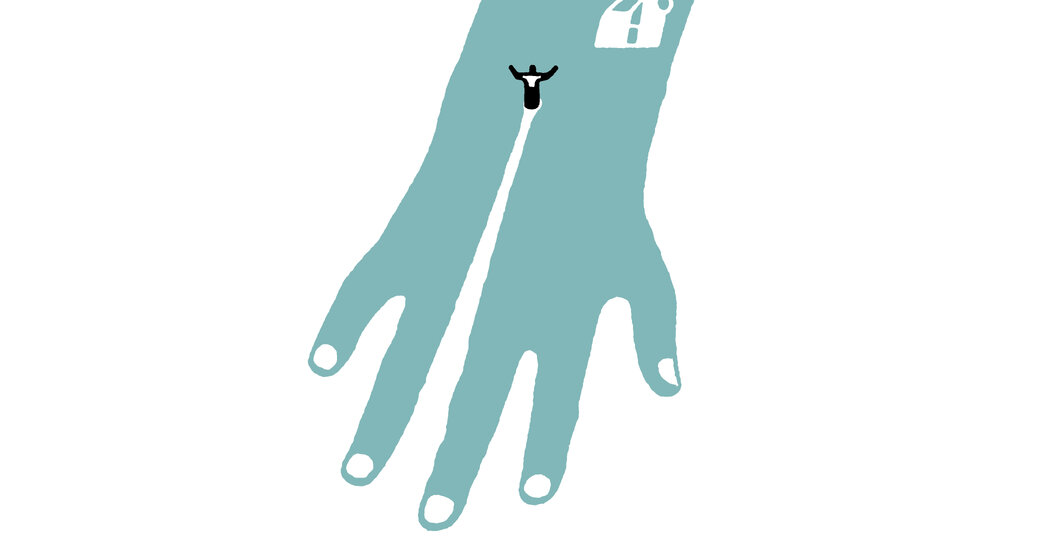South of Nowhere
By Jeffery Deaver
Colter Shaw is a professional “rewards seeker,” a skilled tracker who specializes in finding missing people — usually for the reward money, though sometimes out of the goodness of his heart. It’s a simple enough vocation and yet, as the suspense veteran Deaver has demonstrated in four prior Shaw novels (and the TV adaptation “Tracker”), the ways in which Shaw finds peril — or peril finds him — keep multiplying. In SOUTH OF NOWHERE (Putnam, 403 pp., $30), his sister Dorion implores him to help to locate potential survivors after a levee collapses in a small Northern California town.
From here, Deaver is off to the proverbial races. Does every chapter have a twist? Pretty much. Is Colter just likable enough to brush off needless conflict and still find time for romance? Definitely. Is the writing a little too reminiscent of detailed outlines like the ones Deaver is known to fashion before writing a first draft? You bet. Could I put the book down? Not a chance.
The Colter Shaw series prioritizes action and the constant possibility of calamity, leaving only the barest amount of room for character development, like Colter’s continued grappling with the effects of his survivalist upbringing. The books don’t measure up to the best of Deaver’s Lincoln Rhyme novels, but they all accomplish their mission: thrilling engagement.
Detective Aunty
by Uzma Jalaluddin
Kausar Khan, introduced in DETECTIVE AUNTY (Harper Perennial, 326 pp., paperback, $17.99), has spent the past 20 years relishing the stability of placid North Bay, where she and her husband moved after fleeing busy, bustling Toronto in the wake of a family tragedy.
But then her husband dies shortly after being diagnosed with pancreatic cancer, and her daughter, Sana, calls with upsetting news: “I’m in trouble. There’s been a murder, and I’m the prime suspect.” It seems Sana’s landlord has been found inside her clothing store with a dagger in his chest. Kausar returns to Toronto’s Golden Crescent neighborhood as both a concerned mother and a tenacious amateur sleuth.
The case against Sana is strong, but as Kausar discovers, the murder victim had many enemies. If only the ghosts of Kausar’s past would stop haunting her present-day investigation!
Jalaluddin, who has crossed into crime fiction from the romantic comedy genre, doesn’t skimp on plotting — the whodunit twist caught me pleasingly flat-footed — but shines most with character and community, showing the complexities of mother-daughter relationships and the variability of longtime friendships. “Detective Aunty” is the first in a new series and I certainly welcome more installments.
Night in the City
by Michael McGarrity
Reading Michael McGarrity’s noir novel NIGHT IN THE CITY (Norton, 263 pp., $28.99), about the midcentury death of a Manhattan socialite named Laura Neilson, I found it difficult to avoid thinking about Vera Caspary’s 1943 classic suspense novel “Laura” (and the equally classic film adaptation featuring Gene Tierney and Dana Andrews). While I wished for more structural innovation along the lines of what Caspary accomplished, I did enjoy McGarrity’s more conventional narrative here: A man finds his ex-lover murdered and must clear his name, rooting out widespread corruption as the atmosphere thickens.
The man is the assistant district attorney Sam Monroe, who dated Laura for a time and never really got over the way she broke up with him by bringing a new flame to the local bar that was “their private haunt and rendezvous.” So when she summons him to her Manhattan penthouse, off Sam goes, waved in by an expectant doorman — only to find her body, his Army dog tags wrapped around her neck. One thing is clear: He’s been set up. With the help of an intrepid private eye and his former lover’s diary, Sam sets out to find her killer.
McGarrity paints a seedy portrait of a bygone New York that pulses with life, lust and larceny.
Big Bad Wool
by Leonie Swann; translated by Amy Bojang
Finally, it gives me great pleasure that Swann’s exceedingly delightful Sheep Detective books are once again available for American audiences. “Three Bags Full,” first published in 2005 and reissued in February, introduced an intrepid flock on the case of who had killed their beloved shepherd. In BIG BAD WOOL (Soho Crime, 384 pp., $28.95), the sheep — including Zora, “a Blackface sheep with a weakness for the abyss,” Ramesses, a “nervous young ram full of good ideas,” and Miss Maple, “the cleverest sheep in the flock and maybe even the world” — return with a new minder, Rebecca.
They’re wintering next to a French château, which sounds idyllic, but the disappearance of other sheep, the mounting deaths of deer and, eventually, a human, strike fear in the hearts of the flock, who are worried they or their shepherd may be next. Is it a werewolf, the shape-shifting creature called Garou, as the local goats seem to believe? Or a more prosaic yet sinister culprit? How the sheep discover the truth will enchant readers who pay close attention.
The post New Crime Novels With Unexpected Twists appeared first on New York Times.




